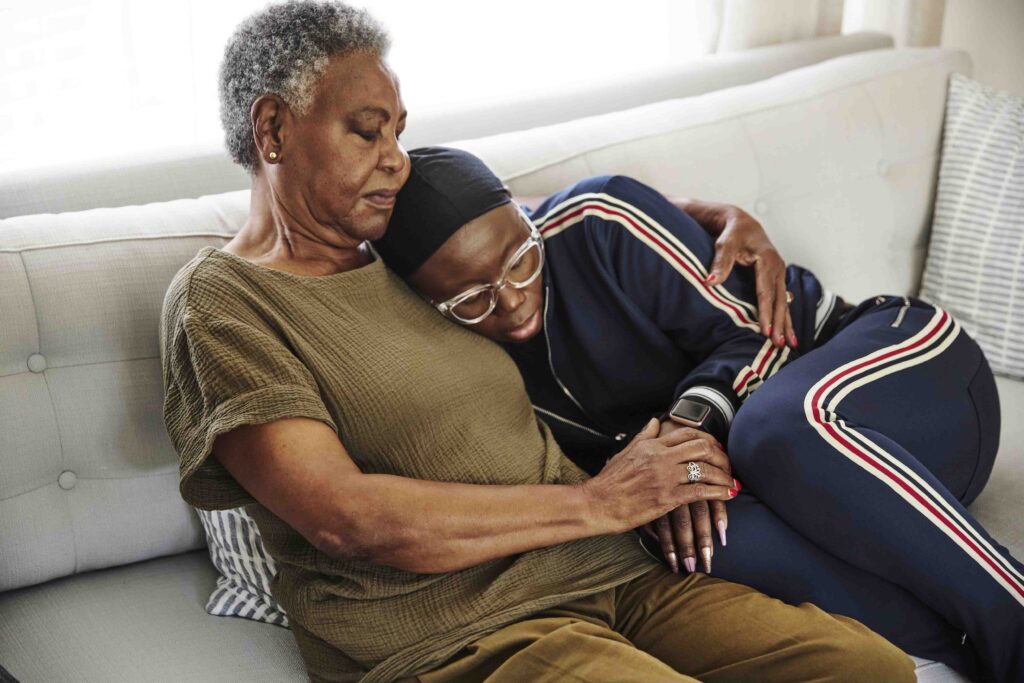
Facts are facts! Without higher levels of participation among Black Americans, we will never unlock the root causes of the varying impact of illnesses, diseases, and ailments plaguing Black communities today. Every day that Black Americans continue to live in fear of clinical trials is another day that we fall further behind in the fight against early deaths and diseases.
Yet, studies show Black Americans continue to distrust medical research and clinical trials, apparently a lasting legacy of the infamous Tuskegee experiment which was shut down more than three decades ago.
But it’s like a double-edged sword:
1. We don’t want to be in clinical trials because of the major distrust of the American health system.
2. But we need to be in clinical trials to see if any new treatments can help us as well.
Such attitudes are keeping minorities from participating in current clinical trials that could save their lives, the researchers added.
Black Americans are afraid of being harmed by clinical research
“We found that minorities are 200 percent more likely to perceive harm coming from participating in research,” said senior study author Dr. Neil Powe, a professor of medicine at Johns Hopkins School of Medicine in Baltimore. While previous studies have shown that Black Americans and other minorities are less likely to be enrolled in clinical trials, this study helps explain why.
“This is new knowledge, obtained with appropriate methods in a large sample,” said Dr. William Cunningham, a professor of medicine and public health at the UCLA School of Medicine. “This study provides direct evidence that distrust of researchers explains the lower participation of Blacks in cardiovascular prevention trials research. This looks like an important study.”
Black efforts to get more of us into clinical trials
“This provides a database to support what we think is going on with respect to concerns ofthe minority community,” said Dr. James Powell, principal investigator of Project IMPACT (Increase Minority Participation and Awareness in Clinical Trials). The project is a program of the National Medical Association, which represents Black physicians and their patients.
“Mistrust comes up not only [concerning] clinical trials but also with respect to interacting with the medical establishment. This leads to people not seeing a physician when they really need to.”
Black Americans tend to be underrepresented in clinical trials that are responsible for most advances in medicine.
This discrepancy is particularly unfortunate, because not only do Black Americans suffer disproportionately from many health conditions, but they often experience illnesses differently and respond differently to medications, making race-specific trials even more crucial, the researchers noted.
Missing out on clinical trials is making Black people sicker
“We’re concerned that the lack of minority representation in clinical trials may perpetuate health disparities,” Powell said.
Previous studies have shown that this under-representation is, in fact, due to individuals’ unwillingness to participate, as opposed to researchers’ exclusion of minorities.
And this unwillingness is widely thought to be due to the legacy of Tuskegee and other such research. The government-sponsored Tuskegee Study, named after a town in Alabama where participants were recruited, enrolled several hundred poor, Black sharecroppers, telling them that they would receive drugs to treat their syphilis infections. But lifesaving drugs were purposely withheld so the “natural” course of the disease could be observed. The experiment ran for 40 years but was shut down after a leak to the press in 1972.
Reasons Blacks aren’t choosing clinical trials
In this latest study, Powe and his colleagues conducted a random survey of 717 outpatients at 13 cardiology and general medicine clinics in Maryland. Thirty-six percent of participants were Black, the rest white.
After an in-depth explanation by a physician (either Black or white), each participant was asked to enroll in a mock trial of a cardiovascular drug.
Only 27 percent of Black American respondents were willing to participate, versus 39 percent of whites.
Among the study’s other findings:
- 24 percent of Black Americans reported that their doctors would not fully explain research participation to them, versus 13 percent of whites.
- 72 percent of Black Americans said doctors would use them as guinea pigs without their consent, versus 49 percent of whites.
- 35 percent of Black Americans said doctors would ask them to participate in research even if it could harm them, versus only 16 percent of whites.
- 8 percent of Black Americans more often believed they could less freely ask questions of doctors, compared with 2 percent of whites.
- 58 percent of Black Americans said doctors had previously experimented on them without consent, compared with 25 percent of whites.
When the element of distrust was removed from the equation, the proportions of Blacks and whites willing to enroll equalized to about a third of those sampled in both racial groups.
How to build better clinical trial trust
The good news is that there are ways to remedy the situation.
“One is physician or researcher relationships and interactions, that physicians and researchers should be taking the time to talk to patients and communicate with them explaining the risk of being involved in medical research and dispelling myths about participating in research,” Powe said. “It’s hard to do in a busy medical environment today but necessary.”
Academic medical centers also need to build relationships that engender trust with the community, even including community members in designing research studies.
Finally, Powe said, patients, tend to trust physicians of the same race. “One big issue is that there are not enough minority physicians, so that’s a societal remedy we all have to think about,” Powe said. Some 12 percent of the U.S. population is Black, but only 4 percent of physicians are Black.
Those numbers might never add up, however, you can contribute to the bigger picture by participating in a local clinical trial. Too many of our people aren’t getting the proper treatment or medication that can heal them at the level of other ethnic groups due to the studies simply not being available.
Find out more about clinical trials on BlackDoctor.org at our Clinical Trials Resource Center.
SOURCES: Neil R. Powe, M.D., M.P.H., M.B.A., professor, medicine, Johns Hopkins School of Medicine, Baltimore; William E. Cunningham, M.D., professor, medicine and public health, UCLA School of Medicine, Los Angeles; James Powell, M.D., principal investigator, Project Impact Program, National Medical Association









